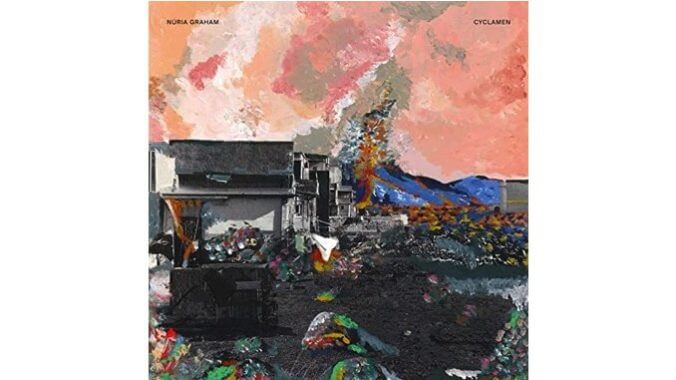Núria Graham Unveils a Daring Second Act Evolution on Cyclamen

Listening through Cyclamen, an arresting collection of piano-led folk adorned with lush horns and strings, you imagine how the Núria Graham of her debut album, pictured on the cover gazing into the distance with a bright red guitar dangling beneath her fingers, might feel knowing that she’d be ditching the instrument almost entirely one day. On the four albums in between First Tracks and her newest offering, the Catalan-Irish songwriter built a legacy as a reliable rocker, tumbling through nostalgic tales of friends and lovers in a six-stringed trance. Culminating in 2020’s breezy Marjorie, Graham never emerged with anything less than inspired in the lead up to Cyclamen, but even as she left multiple-movement psychedelic odysseys behind to explore ’70s-tinged indie pop, her growing vocabulary seemed to hit its limit at the end of the fretboard.
It could be the warm reception to her 2020 release of a five year-old demo that spurred Graham to seek a new muse. The threadbare production of only piano and voice on her uncharacteristically desolate ballad “Boredom” draws the listener deep into the solitude of a lonely summer morning with Graham’s vocals perching high above the scene with a commanding new intensity as she watches the dying wisps of a lost romance (“Tell me, what’s poetry compared to your silence?/ Birds on your chest, you are singing a song”) burn off like clouds in the heat. I imagine the fact that it’s grown to be her most streamed song doesn’t hurt, but perhaps revisiting the track’s tender brutality struck a deeper chord with Graham during the reflective early days of lockdown, with little to do but pick apart the past for clues. Unable to fully tour behind her last LP, she released a pair of singles in 2021 that anchored her firmly behind the keyboard, with spacious arrangements that freed up her voice even further, clearing the runway for a soaring theatricality to take flight.
In light of Cyclamen, “At Last/Ready to Fool You” indeed feels like a proving ground for the album’s convincing reinvention of Núria Graham as a cinematic folk balladeer, but it’s surprising just how cohesively her first album-length vision within this format holds together. The clever framing device of bookending the album with a pair of scene-setting theme tracks does a lot of the heavy lifting. Titled “Procida” (I and II) after an island off the coast of Naples, they draw on the same melody and lyrics as we wade into memories of a “nothingness we call love instead.” The first dives in eagerly, with pitch-shifted harmonized vocals that float past a siren-like choir and plinking harp. When its reprise drifts in on a somber drone, a field recording of ringing church bells over a busy street emerges to push the ground back beneath your feet. Completing the arc of a journey, Graham pulls you out of Cyclamen’s extended daydream, tenderly dragging you back to shore after a brisk half hour spent swimming through her mind.